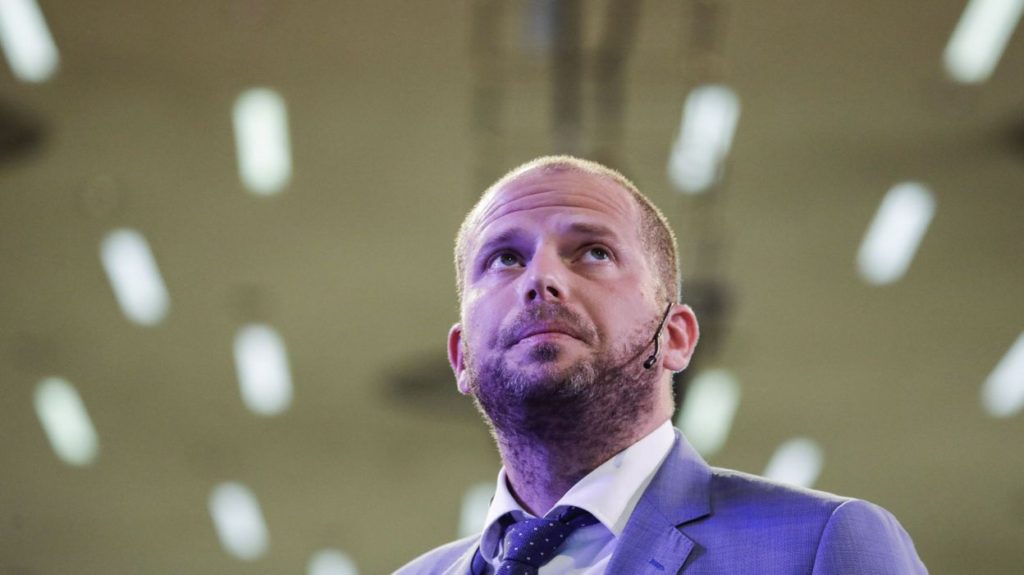Theo Francken, a Flemish nationalist candidate in Belgium’s parliamentary elections, said that if Sunday’s vote confirmed a trend of partisan differences between the country’s regions, confederalism would have to be put on the negotiating table.
In an interview with French-speaking daily La Dernière Heure, the Nieuw-Vlaamse Alliantie (N-VA) candidate once again made the case for transforming Belgium into a confederation of two states, arguing that it was the only way to avoid policy decisions being bogged down by political differences between the regions.
Confederation, a central element of his party’s campaign platform, would see the country’s Walloon and Flemish regions become two Confederate states capable of making their own political decisions.
The move would also see the status of the Brussels Region aligned with that of the country’s German-speaking Community.
Speaking of the Parti Socialist (PS)’s current lead in Wallonia, Francken criticised the party —likening their electoral program to Saint-Nicholas Day— and warned Walloon voters “not to be surprised” by a Flemish backlash if they brought a left-leaning party to power.
“Everything is free [in the PS’ program]: buses, etc… But who will pay? The Flemish, like always,” Francken said, adding: “If Walloons vote all the way to the left, they should not be surprised if Flanders, which votes for the right, says: ‘Dear friends, that is enough.’ Confederalism will then be necessary.”
Francken, a former federal secretary, is now running as an MP for the Flemish Brabant province, and said he hoped to carry out his mandate under a centre-right government led by Jan Jambon, N-VA candidate for the country’s premiership.
Known for his xenophobic and nationalistic stance, during his tenure as Secretary for Migration and Asylum, Francken was enveloped in a scandal over asylum visas which brought the country's coalition government to the brink of collapse, prompting a reshuffle which resulted in his expulsion from government, along with fellow N-VA member Jambon.
On May 26, Belgians are electing Flemish/Walloon, federal and European leaders, as well as choosing new provincial representatives for the country’s Chamber.
Recent electoral poll reports in national media appear to confirm the regions’ partisan divide, as they show that the PS’ candidate for the country’s premiership, Elio di Rupo, as having a considerable lead amongst francophones in both the Wallonia and Brussels regions, while N-VA’s Jambon leads in Flanders.
A cross-regional agreement was however made apparent by the polls, which point out that both Flemish and Walloons want to see a new leader in the country’s premiership.Gabriela Galindo
The Brussels Times

